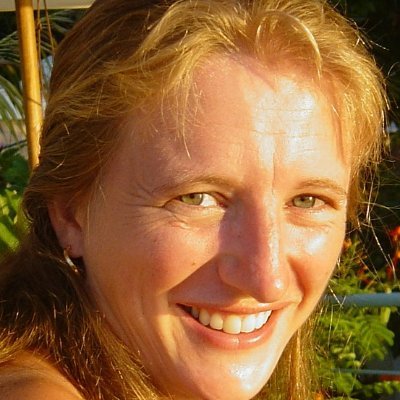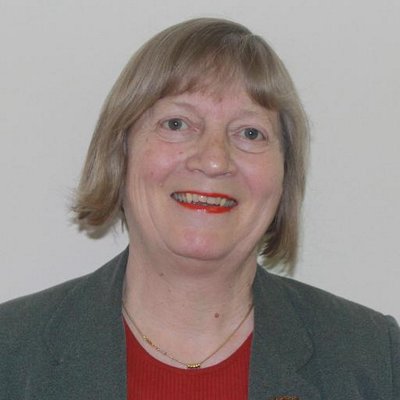strong>Selected by Research Group [
clear filter]
08:45 GMT
BERG: Developing microscopy skills: a plant-rich approach
Thursday January 9, 2025 08:45 - 09:35 GMT
Speakers 
Sustainability Lead and Teacher of Biology, Hills Road Sixth Form College / SAPS
I am the Sustainability Lead and a Biology teacher at Hills Road Sixth Form College as well as the visiting teacher at Science and Plants for Schools (SAPS).I have 20 years experience in education and have been leading biology departments for most of that time although I recently...
Read More →
Thursday January 9, 2025 08:45 - 09:35 GMT
Pope A34
09:45 GMT
BERG: The Daffodil DNA Project (BERG)
Thursday January 9, 2025 09:45 - 10:35 GMT
Speakers 
Assistant Head (Assessment and Reporting), Beaulieu Convent School, Jersey
LL
Senior Lecturer (Teaching and Scholarship), University of Dundee
Thursday January 9, 2025 09:45 - 10:35 GMT
Pope A34
09:45 GMT
Keynote selected by Teacher Developers' Group: Welcoming diverse pre-service science trainees: transformational practices
Thursday January 9, 2025 09:45 - 10:35 GMT
Speakers 
Leeds Trinity University, Senior Lecturer in Secondary Education Twitter, Leeds Trinity University

Course Lead PGCE Secondary Science, St Mary's University Twickenham
I am a lecturer in secondary and primary science, having recently spent 10 years teaching in secondary.As a chemistry teacher I am particularly interested in the understanding of symbolism in science education. I completed my masters in how students justify organic chemistry mechanisms...
Read More →
Associate Professor Physics Education, University of Birmingham
After spending 15 years teaching physics in secondary schools in the West Midlands area, Dan is now Associate Professor of Physics Education at the University of Birmingham as well as a DPhil research student at the University of Oxford. Dan works on widening access to physics at...
Read More →RD
Lecturer Science Education, Kings College London
11:15 GMT
How far can we go? Benefits of International collaboration
Thursday January 9, 2025 11:15 - 12:05 GMT
Speakers AM
Associate Professor, University of Greenwich (Education and Centre for Thinking and Learning)

International Science Education Consultant
Physics teacher, HOD, School Leader, Local Authority adviser, Ofsted Inspector, School Improvement Partner, International Inspector and Evaluator, teacher trainer, author and keen user of the new technologies and believer in global learning. Been in schools in these countries for...
Read More →
Chemistry Teacher, National High School of Science and Mathematics, Sofia/ Sofia University St. Kliment Ohridski
Thursday January 9, 2025 11:15 - 12:05 GMT
Pope A1
15:45 GMT
Borderless Microchemistry
Thursday January 9, 2025 15:45 - 16:35 GMT
Speakers ZI
Science teacher, PhD student, Dragon school, Oxford / Sofia University St. Kliment Ohridski

Chemistry Teacher, National High School of Science and Mathematics, Sofia/ Sofia University St. Kliment Ohridski
Thursday January 9, 2025 15:45 - 16:35 GMT
Pope A1
15:45 GMT
09:45 GMT
A practical guide to developing a culture of research and innovation in you
Friday January 10, 2025 09:45 - 10:35 GMT
Speakers 
Deputy Director, Institute of Research in Schools (IRIS)
Marcus is the Deputy Director at The Institute for Research in Schools (IRIS), where he focuses on shaping the organisation’s strategy to inspire a new generation of STEM researchers and innovators. A former deputy headteacher and science teacher in Birmingham’s inner-city schools...
Read More →
Head of Education Innovation, Institute of Research in Schools (IRIS)
Georgie supports schools in developing a culture of research & innovation, while helping them improve their overall STEM provision.She brings a wealth of experience to her role, having taught science for more than 15 years and formerly serving as a curriculum and school senior leader...
Read More →AR
Head of Research & Evaluation, IRIS (Institute for Research in Schools)
Friday January 10, 2025 09:45 - 10:35 GMT
Pope A34
12:15 GMT
15:45 GMT
Flux and stability
Friday January 10, 2025 15:45 - 16:35 GMT
Speakers 
Director, NUSTEM, Northumbria University
Carol is an Associate Professor and Director of NUSTEM at Northumbria University.Carol began working in education at Barnsley College as a Physics lecturer, and later taught at a large North East school. Moving into teacher education, she worked within the network of Science Learning...
Read More →
Friday January 10, 2025 15:45 - 16:35 GMT
ESLC B04
08:45 GMT
09:45 GMT
11:15 GMT
Research Keynote: Purposeful and effective practical work in primary science
Saturday January 11, 2025 11:15 - 12:05 GMT
Speakers 
Visiting Researcher University of Manchester, University of Manchester

Professor / Director, SEERIH, University of Manchester
Vice Dean for Social Responsibility, Equality, Diversity, Inclusion & Accessibility Director of Science & Engineering Education Research and Innovation HubComino Foundation Associate Great Science Share for Schools Campaign Director Principal Fellow of the HEA RSA Fellow

Professor of Primary Science Education, Bath Spa University
Prof. Sarah Earle PhD CSciTeach FHEA FCCT (she/her)@PriSciEarleProfessor of Primary Science EducationSchool of Education Knowledge Exchange LeadEditor for the Journal of Emergent Science and Research in Science & Technological EducationProject lead for Teacher Assessment in Primary...
Read More →
Saturday January 11, 2025 11:15 - 12:05 GMT
Pope LT C15
12:15 GMT
CLEAPSS: Science Ninja's - giving children a choice
Saturday January 11, 2025 12:15 - 13:05 GMT
Speakers 
Primary Science Consultant, CLEAPSS

Lecturer in Chemistry Education, Kings College London
I am a Lecturer in Chemistry Education at King’s College London with a research focus on practical work across primary and secondary settings. I have a passion for bringing scientific enquiry into the curriculum and have been closely involved in supporting professional development...
Read More →JH
Primary Section Leader, CLEAPSS
Saturday January 11, 2025 12:15 - 13:05 GMT
Physics B23
15:30 GMT
How can we harness creative skills when thinking like a scientist?
Saturday January 11, 2025 15:30 - 16:20 GMT
Speakers 
Secondary science teacher and Primary partnership science co-ordinator,, Penryn College
I am a secondary school science teacher in Cornwall. I was an Environmental Chemist in industry and academia. Talk to me about our primary science partnership. I am also very interested in educational research and how to get it published.
CS
Head of Science, Penryn College
Saturday January 11, 2025 15:30 - 16:20 GMT
Physics B23


